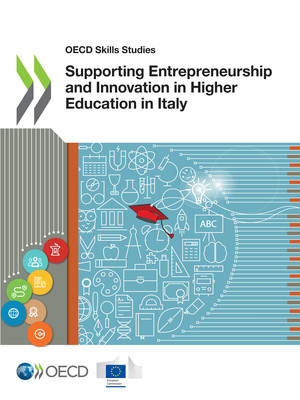copy the linklink copied!Preface by Italian Minister
Italian Higher Education (HE) is facing some crucial challenges and actions are essential to unleash its full potential within the European context. Promoting an entrepreneurial and innovative agenda and a new sustainable development model should become pivotal in every education policy. Furthermore, a long-term national strategy should encompass engagement and the so called ‘third mission’ (that is to say, generating knowledge outside academic environments to the benefit of social, cultural and economic development).
The Higher Education Innovate Country Review for Italy shows how Italian universities share this vision and are committed to excellence in research and positive social impact. We are well aware of the central role education plays in fully developing the country’s potentials. As a relevant player, the Ministry of Education, University and Research is aware that engaging various ministries in common actions ensures high impact reforms, whose benefits go far beyond education and research. Stronger cooperative relationships can generate value not only for a single network, but for much wider ecosystems. Indeed, in designing and implementing a policy, institutions have to take into consideration all stakeholders’ demands – universities and research institutes, professors, researchers, students, administrative staff – as well as local communities, enterprises or international players.
From an international point of view, Italian universities and research institutes can play a key role, provided that national policies integrate with the European Education Area and the European Research Area. It gives us the opportunity to learn good practices from other countries and improve. In 2018, Italy participated in the Higher Education Innovate Country Review and, since then, we have had the opportunity to assess our higher education system. We were also able to identify new ways to enhance the quality of Higher Education. The new focus of the strategy is based on four essential pillars: knowledge exchange and collaboration; internationalization; digital transformation and capability; organisational capacity. We relied on the win-win collaboration provided by the main stakeholders of the system taking part in the Steering Group. Eleven higher education institutions from all over the country hosted international experts for a study visit and many more provided their inputs through the answers to the Leaders’ survey. In addition, this Report highlights the results of a stakeholders’ workshop held in Milan in May 2018. Universities and enterprises shared their views on knowledge exchange and collaboration.
I would like to express my deep gratitude to the Chair and the members of the Steering Groups, all Universities hosting visits and the stakeholders’ workshop, those filling in the Leaders’ survey and, last but not least, the European Commission, OECD, their staff and the international experts for an empowering and unique experience.
The High Education Innovate Country Review offers relevant suggestions for policy actions at both national and institutional level. Policy initiative for the upcoming years, such as the “Research Pact”, the Guidelines for Strategic planning 2019-2021, the Research Evaluation Exercise promoted together with the National Quality Assurance Agency (ANVUR), are developed so that Institutions are empowered to fully contribute to the advancement of our system. Together with institutions and stakeholders, we will keep on ensuring sustainable development through education and research.

Lorenzo Fioramonti
Italian Minister of Education, University and Research
Metadata, Legal and Rights
https://doi.org/10.1787/43e88f48-en
© OECD/European Union 2019
The use of this work, whether digital or print, is governed by the Terms and Conditions to be found at http://www.oecd.org/termsandconditions.


